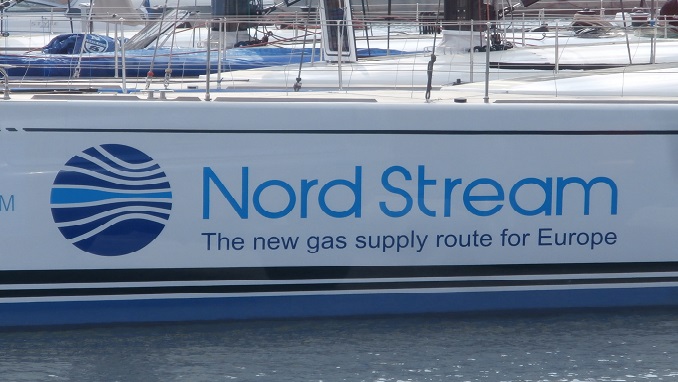Russian state-owned energy giant Gazprom is determined to finish construction on the remaining one-third of its Nord Stream 2 gas pipeline by the end of 2019—but the project’s opponents, from Washington to Copenhagen, are gearing up for a fresh fight against the undertaking, RFE/RL writes.
However, despite U.S. President Donald Trump’s efforts to derail the project, experts told the news outlet that Washington can only try to prolong the pipeline’s launch or make it more expensive, while stopping it is already off the cards.
The 1,220-kilometer-long pipeline — which extends from Russia’s Leningrad region along the Baltic Sea floor to the northern German resort of Lubmin — will double Germany’s imports of Russian natural gas.
“It really makes Germany a hostage of Russia if things ever happened that were bad,” Trump said at a June 12 meeting in Washington with Polish President Andrzej Duda, also a fierce opponent of the pipeline.
Using its political and economic influence with European allies, the United States has repeatedly – and unsuccessfully – tried to halt Kremlin energy projects in the past — such as the Friendship (Druzhba) oil pipeline in the 1960s and the Brotherhood (Bratstvo) gas pipeline in the 1980s, RFE/RL writes.
“It is about European sovereignty and that is not understood in Washington,” says Josef Braml, head of the USA-Transatlantic relations program at Deutsche Gesellschaft fur Auswartige Politik (DGAP) in Berlin. Nord Stream 2 “can be delayed and made more expensive, but it can’t be stopped. The train is gone.”
Large swaths of Eastern Europe, from Romania to the Baltic states, strenuously object to the project. In March, the European Parliament voted overwhelmingly (402 to 163) to oppose Nord Stream 2. Denmark has so far refused to give its agreement for the pipeline to pass through its territorial waters, while Gazprom and the European Commission are duking it out in court over an EU gas directive amendment that would require any pipeline importing gas into the bloc to not be owned directly by a gas supplier like Gazprom.
Meanwhile, the view that Nord Stream 2 threatens European energy security is not universally agreed upon.
“The proposed sanctions goal of protecting Europe from Russian energy blackmail is based on an obsolete understanding of energy markets,” Eugene Rumer, director of the Russia and Eurasia program at the Carnegie Endowment for International Peace, wrote this month.
“Thanks to these new discoveries, the shale-gas revolution in the United States and construction of LNG terminals, more suppliers will be competing for a share of Europe’s burgeoning gas market,” he said.












